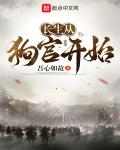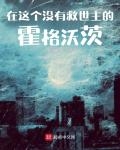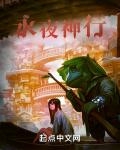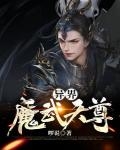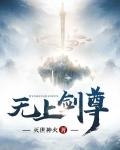Chapter 191: One bombshell after another, everyone is stunned!
When Zhu Yuanzhang first established the country, he granted fiefs to his descendants in various places.
These princes are like seeds. After one or two hundred years, they continue to take root, sprout, mature and bear fruit. The number of their reproduction is astonishing.
In Shanxi province alone, there was only one King of Jin during the Hongwu period, but by the Jiajing period, the number of royal descendants with titles had increased to 1,851.
During the Hongwu period, there was only one King Zhou in Henan, but by the Wanli period, there were more than 5,000 royal descendants.
Because of the ancestral system, these royal descendants were unable to engage in other occupations and could only rely on salaries from the court to live.
There was indeed no big problem at the beginning, but as time went on, these people continued to multiply and the geometric growth of the royal population meant that fiscal expenditure increased by dozens or hundreds of times.
During the Jiajing period, an imperial censor named Lin Run listed a set of data:
Every year, four million shi of grain were transported to the capital, but the annual salary of the royal family was 8.53 million shi.
Shanxi has 1.52 million dan of rice every year, and the annual salary of the royal family is 3.12 million dan.
Henan had 843,000 dan of rice, and the annual salary of the royal family was 1,920,000 dan.
In other words, even if all the grain remaining in the two provinces was paid to the royal family, there would still be more than half left.
In this case, where will the salaries of officials and military pay come from?
The output of the fields is limited, but the reproduction of the royal family is unlimited...
Zhu Yuanzhang's descendants gradually became a heavy burden on the Ming Empire.
Zhu Yuanzhang did not discover this problem at the beginning. Even if the later emperors had discovered it, they could only turn a blind eye to it due to various factors and chose to make the people suffer further.
In addition to these salaries, the royal families, because of their special status, also extended their hands to many profitable areas.
Through various means of plunder, the royal family members accumulated countless wealth.
These powerful royal clans colluded with local wealthy businessmen and officials. For the sake of profit, they would even embezzle the salaries of fellow royal descendants, causing countless poor royal descendants to starve to death.
History has its cycles, and all these years of carnival are not free after all.
By the end of the Ming Dynasty, after Li Zicheng, Zhang Xianzhong and other "Seventy-two" rebels dominated the country, the carnival feast of the Ming royal family finally came to an end.
These princes, dukes, and generals with the surname Zhu became the most interesting prey of the peasant army.
Wherever the peasant armies, big and small, passed, all the royal family members were doomed.
The most magnificent royal palaces across the country were almost all reduced to ashes in the war that raged across the country.
In the 16th year of Chongzhen, Li Zicheng led his army into Shanxi. Wherever he arrived, he first hunted and killed the royal family.
After conquering Taiyuan at the beginning of the 17th year of Chongzhen, Li Zicheng's army "captured more than 400 members of the Jin royal family, sent them to Xi'an, and killed them all."
In March of the 17th year of Chongzhen, Li Zicheng's army captured Datong again.
Within six days, more than 4,000 kings and royal family members including King Dai Zhu Chuanqi were killed.
Other princes were hardly spared either.
Shanxi is just a microcosm.
In fact, although Li Zicheng was known for being "not bloodthirsty", almost none of the princes with the surname Zhu survived wherever his troops passed.
Zhang Xianzhong's army was good at destroying everything together. Wherever they went, they wiped out all the kings and burned everything.
Zhu Yuanzhang's original idea was to let his son guard the world.
No matter who rebels in the future, the emperor will always be a member of the Zhu family.
But the actual development is always contrary to our wishes and quite the opposite.
These people did not become the backbone of the Ming Dynasty.
Instead, they all relied on the merits of their ancestors to act arrogantly and became bloodsuckers of the empire.
For these royal descendants, they have the right to lie down and feel justified... My ancestors did all my work for this life when they conquered the world. Why should I work for them?
Even at the end of the Ming Dynasty, when Chongzhen was in the most impoverished days, these wealthy royals did not even think of lending a helping hand or giving Chongzhen some money. Instead, they asked Chongzhen for money. Why haven’t they paid this year’s salary yet? How long do they want to delay it? Even the princes didn’t have any surplus food!
This directly accelerated the demise of the Ming Dynasty and dealt a devastating blow to their interests.
When the country was about to fall apart and the Ming Dynasty was about to collapse, this group of people did not help at all. Instead, they held their pockets tightly, fearing that Chongzhen would take a penny from them. This is a perfect example of being greedy for small profits and having no sense of justice.
Faced with this desperate situation, Chongzhen gave up and said: I'm going to hang myself!
After the emperor's death, the royal family members of the Ming Dynasty either made a final resistance or committed suicide for their country. Of course, more of them surrendered to the rebels and the Manchus.
When these people first surrendered, the Qing government treated them well. Not only did they give them money and food, they even offered them official positions.
But in the third year of Shunzhi, the Qing government stopped giving money and grain. When Lekedehun went south to fight, he directly ordered his subordinates:
"As for those who surrendered to the Ming Dynasty and offered their territory, they will all be spared from death and brought to the capital. Those who surrendered under pressure, rebelled and returned, or were captured and offered their allies, no matter how old they were, they will all be killed!"
In other words, the Qing Dynasty not only stopped giving money, but also stopped treating the descendants of the Zhu family as nobles. In addition, it also wanted to completely kill all the members of the Ming Dynasty royal family.
This has also been the standard practice throughout the dynasties.
Since Liu Yu of the Southern Dynasty, every new dynasty began to massacre and persecute the royal nobles of the previous dynasty.
Once you become an emperor and a member of the royal family, your destiny is tied to that of the country, and you share the same fate and life and death with the country.
What a pity is... the majority of people in this world only focus on their own immediate interests.
This outcome has proved that what Lao Zhu did was totally wrong.
In this case, Su Che certainly had no psychological burden in making the changes.
The most important thing is that there is still time to change it now!
This time point is also very early.
If we wait until the middle or late Ming Dynasty, when things have already been done and the problems have become deep-rooted, it would be really difficult to make changes.
Su Che did not hesitate and started making drastic changes!
The first thing to be abolished was Zhu Yuanzhang's rule that royal family members were not allowed to engage in any profession.
The second is endless offerings.
Prior to this, the Ming Dynasty system stipulated that the emperor's sons be granted the title of prince.
They were granted golden books and golden seals, a salary of ten thousand stones, and could establish their own government offices and possess military power. The number of their guards could range from as few as three thousand to as many as nineteen thousand.
In terms of food, clothing, daily necessities and various etiquette, he was only second to the emperor.
Once the legitimate son of a prince reaches the age of ten, he will be granted a golden book and a golden seal and be named the crown prince. The eldest legitimate grandson will be named the crown prince and his crown and clothes will be considered as the first rank.
The rest of the prince's sons were granted the title of prince with gold and silver books and silver treasures when they turned ten.
The eldest legitimate son of a prince is appointed as the prince's heir, and the eldest legitimate grandson is appointed as the eldest grandson, and their hats and clothes are of the second rank.
The other descendants were the General Guarding the Country, the General Auxiliary the Country, the General Serving the Country, the Lieutenant Guarding the Country, the Lieutenant Auxiliary the Country, and the Lieutenant Serving the Country, in descending order.
After the sixth generation, they were unified as Lieutenants of Fengguo and no longer surrendered.
Under Su Che's changes, the original system left the treatment of princes unchanged for the time being, while the treatment of county kings was cut by more than half.
After being demoted step by step, the seventh generation of royal family directly became ordinary civilians and could engage in any profession to make a living.
also.
Su Che also established an incentive standard and punishment mechanism!
Those who have made contributions will be rewarded, and those who have made mistakes will be punished!
Before this, Zhu Yuanzhang treated his descendants with unconditional love. If he lacked something in his early years, he would give his sons everything he could.
Although most of Zhu Yuanzhang's sons were normal, the King of Chu loved doing business, the King of Yan liked fighting, the King of Zhou loved studying medicine, there were also those who liked studying mathematics, and even those who liked farming.
Of course, there are some fools.
These people do whatever they want by virtue of their status.
For example, Zhu Yuanzhang’s tenth son was named Zhu Tan.
This man was good at writing and poetry, and was humble and courteous. Zhu Yuanzhang liked him very much and named him King of Lu shortly after he was born.
He also married the daughter of Tang He, a founding father of the country. It can be said that Zhu Tan's life reached its peak at a very young age.
At the age of sixteen, Zhu Tan took his wife to his fiefdom, Lu.
The emperor was far away and without the constraints of the royal family, he could do whatever he wanted in his fiefdom.
Without restraint, this is often a disaster for immature people.
Zhu Tan fantasized about becoming an immortal god. He kept many Taoists and was obsessed with the art of making elixirs.
His wife, Tang, not only did not try to persuade or stop him, but on the contrary she encouraged her husband's pursuit of immortality.
Later, the Taoist priests around Zhu Tan deceived him and said that conventional practice was too time-consuming and that if he used one hundred eight-year-old eunuchs to perform rituals, he could accelerate his progress to immortality.
Tang personally led people to search for the eight-year-old boy everywhere in the fiefdom. After the child was caught, he was immediately castrated and detained in the palace, which caused public outrage.
Later, they extended their claws into the military camps and captured many young children in the camps.
After someone reported this to Zhu Yuanzhang, he flew into a rage and immediately arrested the Prince of Lu and his wife and brought them to Beijing.
Zhu Yuanzhang first ordered the death of his daughter-in-law Tang, and then sentenced his son, Prince of Lu Zhu Tan, to shave all his hair to humiliate him.
The following year, Zhu Tan died of poisoning.
Zhu Yuanzhang was very disgusted with him and gave him the posthumous title "Huang", and people called him King Luhuang.
Zhu Yuanzhang recorded these absurd things his son did very clearly, recorded all the mistakes in a book, and made them public in an attempt to warn other princes.
However, without a proper reward and punishment mechanism, it is impossible to have much deterrent effect.
In addition to the new policies, Su Che also allowed these princes of the Zhu family to develop in all aspects according to their own preferences.
They have a noble status and position, as well as absolute power, which is simply incomparable to others.
Originally, in Zhu's view, his sons' other hobbies were unorthodox, and governing the country was the right way, so he did not allow them to develop their hobbies at all.
But now, Su Che not only relaxed the constraints on them, but also encouraged them .
If someone likes farming, let him study it carefully, such as how to apply fertilizer to increase soil fertility and how to select good rice seeds to increase the harvest.
If you continue to research in this area and can continuously improve the harvest, you will be greatly rewarded and may even become a hero to the entire Ming Dynasty.
Any industry has unlimited potential.
Su Che's attitude is very clear - Legalism should not be the main theme of society. Legalism is indeed noble because it holds power, but if there is no development in other areas, it is basically stagnant.
Therefore, even if it is farming, someone should study it.
The ancient farmers revered Shennong as their teacher and regarded agriculture as the foundation of the country. His theories had a far-reaching influence.
In the pre-Qin period, there was already a saying of "scholars, farmers, merchants and artisans". "Farmers talk about strength, scholars talk about behavior, artisans talk about skill, and merchants talk about numbers."
All dynasties in China have emphasized agriculture over commerce in order to allow for recuperation and development, which is the foundation for strengthening themselves.
But even though agriculture is so important, it is one of the “nine classes” and one of the lowest classes of industries.
This should never happen.
Su Che doesn't have that much energy to take care of so many things while also studying agriculture.
Just leave it to Lao Zhu's son to do, to blossom in another field, to break some Confucian traditions and to open up some new tracks.
If the research becomes a system, Su Che will also establish an "Agricultural College" to recruit people from all over the world who are willing to study agronomy, set up agricultural officials, and manage local agriculture.
Every profession has its own specialization. Let professionals manage professional matters instead of letting some Confucian scholars who only know a lot do these things.
This is Su Che’s idea, and this is just the beginning.
Besides agriculture.
Those who like to do business can be allowed to develop their businesses, set up various commercial venues, transport materials and sell them everywhere, and even be allowed to get involved in the future opening of sea trade and the Silk Road.
Instead of giving this part of the business profits to those wealthy families, it is better to let our own people take it. At least collecting taxes will be relatively simpler.
For those who like to study medicine, let them set up medical schools to teach people who are willing to learn medicine. Let them serve as medical officers in various places and set up official hospitals.
If the standard of medicine could be raised, those scoundrels in the Imperial Medical Bureau who brought disaster to the Ming emperors would no longer exist.
In addition, the development of medicine, like agronomy, is also a new track.
The status of doctors in ancient times was not low, but as Confucianism became the only official ideology, its status became lower and lower, which is obviously unreasonable.
Su Che not only encouraged others to study agronomy, but also encouraged others to study medicine.
In addition, for those who study mathematics, this is even more worthy of promotion.
Ancient Chinese mathematics had developed to a fairly high level in practical mathematics.
However, due to the lack of systematic mathematical and logical ideas, the height and breadth of its development, as well as its role in promoting society as a whole, are restricted to a limited range and cannot go any further.
Simply put, China's mathematical development tends to solve practical problems.
For example, in the areas of bookkeeping, construction, field measurement, and calendar calculation, the relevant knowledge is mainly mastered by practitioners.
At the same time, since this type of engineering knowledge was always regarded as "unfair" in the ancient times when Confucianism was highly respected, the best talents would never engage in research in these fields, and eventually they would hit a ceiling after developing to a certain level.
It was a pity that we were the leader and the world leader for a long time, but in the end we achieved limited results.
Su Che naturally hopes to change this phenomenon!
Fields such as agronomy, medicine, and mathematics basically want to cut a piece of the Confucian cake, and will inevitably be wildly opposed.
Generally, people in high positions and with great power are not qualified to accomplish these things. Even emperors of later generations are not capable of doing this.
But Su Che is different, his identity is the founding emperor Zhu Yuanzhang.
He can decide the life and death of tens of thousands of officials with just a single word. What does a mere reform count for?
It is you Confucians who will be killed!
It’s your Confucian cake that’s being shared!
Not convinced?
Then die!
besides.
As for the war-loving Prince of Yan, Zhu Di, Su Che also assigned him a task, asking him to set up a military academy to teach military talents, command, military formations, and various tactics.
If Zhu Di cannot accomplish it alone, he can ask those noble and military generals for help!
If he does this job well, he will be rewarded as the General of the Northern Expedition, given the most elite soldiers and horses, and allowed to conquer the north and conquer the Wolf's Lair!
This condition was very tempting. Su Che was not worried at all that Zhu Di would not agree. On the contrary, he would be very happy to do it.
After formulating the relevant policies, Su Che released them.
It's like a bunch of blockbuster bombs, thrown out at once and exploded!
All the important officials in the Ming Dynasty court were stunned!

